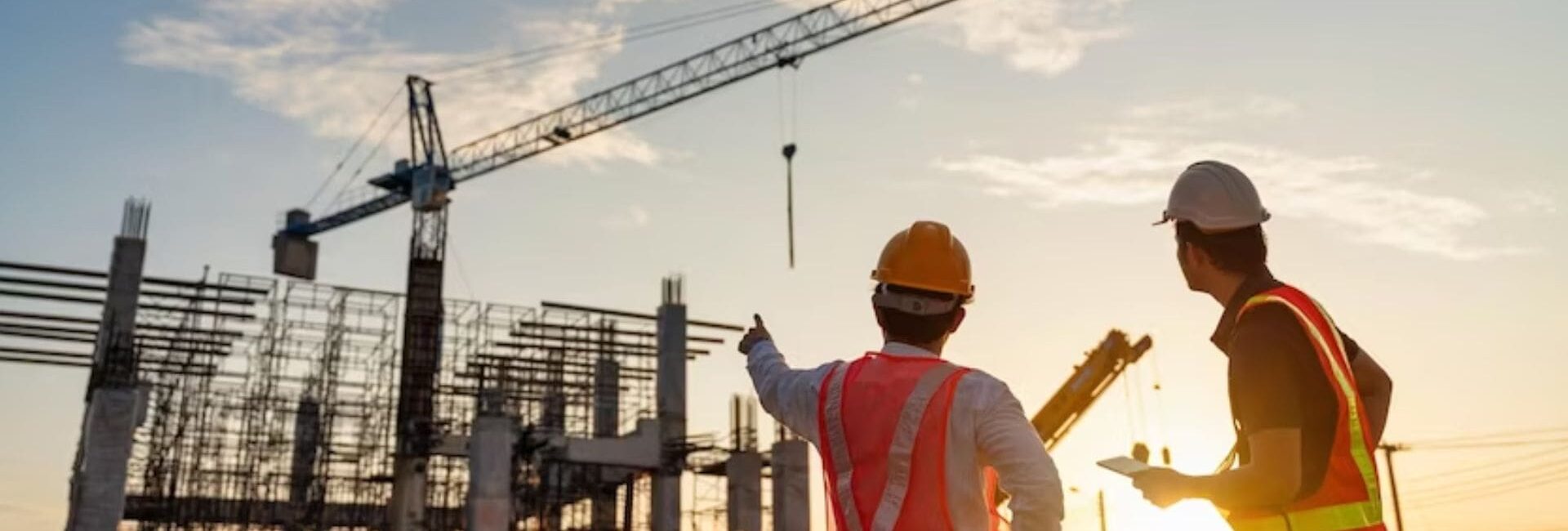
Construction contractors play a crucial role in the successful execution of construction projects, serving as the driving force behind the physical realization of architectural designs. Whether it’s residential, commercial, or infrastructure development, a skilled contractor ensures efficient project management, quality craftsmanship, and adherence to safety standards. This article aims to provide a comprehensive overview of construction contractors, their responsibilities, qualifications, and key considerations when hiring one.
What is a Construction Contractor?
A construction contractor is a professional or a company that oversees and manages construction projects from inception to completion. They are responsible for coordinating various activities, including project planning, procurement, scheduling, budgeting, subcontracting, and on-site supervision. Contractors work closely with architects, engineers, clients, and subcontractors to ensure timely and successful project delivery.
Responsibilities of Construction Contractors:
a) Project Planning: Contractors participate in the initial planning stages, collaborating with architects and clients to develop project timelines, budgets, and resource requirements.
b) Procurement: They source and acquire materials, equipment, and subcontractor services necessary for the project.
c) Project Management: Contractors oversee day-to-day operations, including scheduling, resource allocation, and coordination among different stakeholders.
d) On-Site Supervision: They ensure that construction activities comply with safety regulations, quality standards, and contractual requirements.
e) Quality Assurance: Contractors conduct inspections, quality checks, and manage any necessary corrective actions to maintain the desired construction standards.
f) Budget and Cost Control: They monitor project expenses, control costs, and make necessary adjustments to ensure the project stays within the allocated budget.
g) Risk Management: Contractors identify and mitigate potential risks and challenges throughout the construction process.
h) Client Communication: Contractors maintain regular communication with clients, providing progress updates and addressing any concerns or modifications.
Qualifications and Skills of a Construction Contractor:
a) Knowledge and Experience: Contractors should have a solid understanding of construction principles, techniques, and materials. Experience in managing similar projects is crucial.
b) Licensing and Certifications: Depending on the jurisdiction, contractors may need to obtain appropriate licenses, permits, or certifications to operate legally.
c) Project Management Skills: Effective contractors possess strong organizational, leadership, and communication skills to manage teams, budgets, and timelines.
d) Construction Industry Network: Building relationships with subcontractors, suppliers, and other industry professionals enhances a contractor’s ability to execute projects successfully.
e) Problem-Solving Abilities: Contractors must be adept at identifying and resolving construction-related challenges efficiently and creatively.
f) Financial Acumen: Understanding project finances, budgeting, and cost control is essential for a contractor’s success.
Hiring a Construction Contractor
a) Define Project Requirements: Clearly articulate your project’s objectives, scope, timeline, and budget.
b) Research and Shortlist: Seek recommendations, review portfolios, and conduct interviews to create a shortlist of potential contractors.
c) Check Credentials: Verify licenses, certifications, insurance, and references to ensure the contractor’s credibility.
d) Experience and Expertise: Assess the contractor’s experience in similar projects and their familiarity with local construction regulations.
e) Communication and Compatibility: Evaluate the contractor’s communication style and ensure they understand your vision and expectations.
f) Contract Agreement: Draft a comprehensive contract that covers project details, timelines, payment terms, change orders, and dispute resolution mechanisms.
Conclusion
Construction contractors are instrumental in the successful execution of construction projects. Their knowledge, experience, and skills contribute to delivering high-quality structures within budget and timeline constraints. By understanding their responsibilities, qualifications, and hiring considerations outlined in this article, you can make informed decisions when selecting a construction contractor for your next project. Remember, choosing the right contractor is a critical step towards achieving construction excellence.
play a crucial role in the successful execution of construction projects, serving as the driving force behind the physical realization of architectural designs. Whether it’s residential, commercial, or infrastructure development, a skilled contractor ensures efficient project management, quality craftsmanship, and adherence to safety standards. This article aims to provide a comprehensive overview of construction contractors, their responsibilities, qualifications, and key considerations when hiring one.

